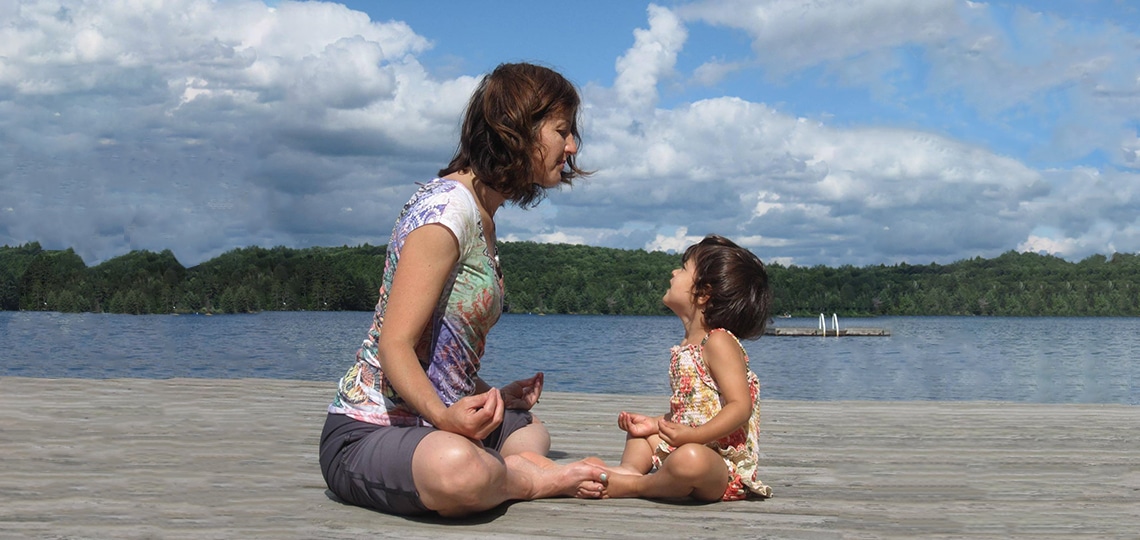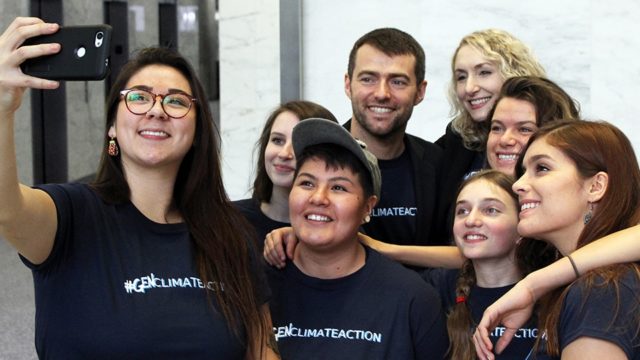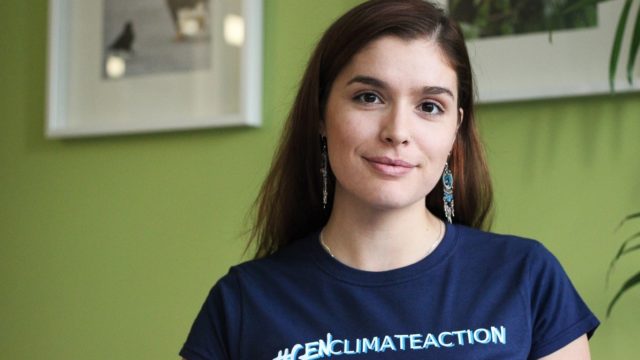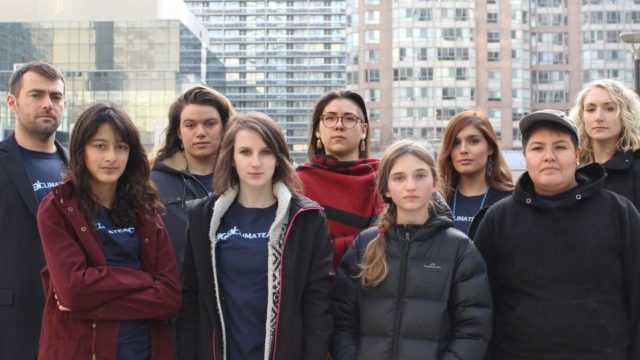Fhow climate A multi-generational view of the climate crisis – and why anybody, at any age, can be part of #GenClimateAction.
Inspired by leaders like Greta Thunberg and Autumn Peltier, worried about their futures, and angry about the environmental mess they’re inheriting, young people are some of the most prominent climate activists today.
But these youth can’t win the fight for a safe climate on their own. Ending the climate crisis will require all of us – regardless of age or generation – to come together.
Last November, seven young Ontarians launched a climate lawsuit against the Doug Ford government, with the help of Ecojustice lawyers. The youth leading the case call themselves #GenClimateAction. And even though they’re all between the ages of 13 and 25, they say there’s no age limit for joining their fight.
Watch: “Young Canadians sue government for climate inaction,” via CBC.
For more on why ending climate change will take an intergenerational movement, how they’re working with people of different ages and circumstances to make a difference, and why anybody at any age can be part of #GenClimateAction, Ecojustice interviewed two of our youth clients, Sophia and Shaelyn, and two of their mentors, Sophia’s mom, Cathy, and Shaelyn’s former professor, Barbara Wall, for a multi-generational look at the climate crisis.
Read on for what they had to say.
A multi-generational view of the climate crisis: Who Ecojustice spoke with
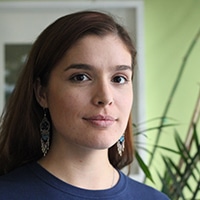
Shaelyn Wabegijig is one of seven young people taking the Ford government to court for weakening Ontario’s 2030 climate target. Shaelyn grew up in Rama First Nation and her family are Algonquin from Timiskaming First Nation and of European Descent. She is Caribou Clan and resides in Nogojiwanong (Peterborough). Shaelyn is the office and SDG Project coordinator at the Kawartha World Issues Centre.
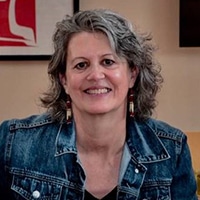
Barbara Wall is Deer Clan Bodwewaadmii Anishinaabekwe (Potawatomi Anishinaabe) and an enrolled member of the Citizen Potawatomi Nation of Shawnee, Oklahoma. She is a mother, auntie, daughter, sister and grandmother. Barbara is also a tenure-track Professor in the Chanie Wenjack School for Indigenous Studies at Trent University and instructor for courses in the Indigenous Environmental Studies and Sciences program.
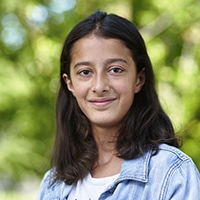
Sophia Mathur is another youth taking the Ford government to court. Sophia was the first student in Canada to join the Fridays for Future movement. She started striking for the climate in her home city of Sudbury, Ont. in November 2018 — months before Swedish activist Greta Thunberg became a household name.

Cathy Orlando is a scientist, educator and mother of three from Sudbury, Ont. As Sophia’s mother, Cathy also acts as a litigation guardian in the youth-led climate lawsuit against the Ford government. In addition to supporting her daughter’s activism, Cathy is a climate activist herself and the founder of the first Canadian chapter of the Citizen’s Climate Lobby.
On the how the climate crisis impacts their generation…

Shaelyn:
“I can’t just worry about going to school and getting a job and having a family when there’s this looming crisis down the road. I’m scared that a lot of things are going to change in everybody’s life. What will the weather look like? What will playing outside look like?
“Also, when you’re young, everybody thinks you shouldn’t have much of a say because you don’t have all the experience or rank that older people have. But our generation wants to have that respect for our ideas and we’re in a position now where we’re ready to step into those leadership roles.”
Barbara:
“First I need to identify my generation within the seven stages of life, a foundational Potawatomi teaching. I am transitioning between the stage of wisdom and the stage of being an Elder.
“My concerns extend beyond human beings and include the impacts of climate change on our ways of being and knowing. I don’t see that my concerns are specific to a generation. As the changes impact our lands and water, there are significant negative impacts on our food systems and our medicines which in turn impact our cultural practices and ceremony. Our non-human relatives and their habitats are threatened, and their abilities to adapt and survive are restricted by current land and water use as well as contamination. This, of course, impacts our reciprocal relationships. These relationships are the core of our ways of being and knowing.”
Sophia:
“What scares me the most about climate change is the chance of death. I’m scared of the people I love, my friends, and family getting hurt.
“I think that adults, their brains think everywhere. They’re thinking about money. Kids think straight. We know we know we need to act on this. What the older generation needs to learn is that our generation wants to grow up in a livable future. We just want to have a life.”
Cathy:
“What worries me most is the thought of handing over my children a world that is not livable. It was 2007 when the AR4 IPCC Report came out and when I heard the report, what I heard was, ‘If we keep doing what we’re doing, the planet is going to become very difficult to live on.’ My daughters’ lives flashed before my eyes. As a mom, I worry immensely.”
On why an intergenerational approach – informed by Indigenous knowledge and practices – is critical for addressing the climate crisis…

Shaelyn:
“All generations have roles that they can play. Younger generations can envision so much with their creativity and their imagination. Then there’s an older generation that offsets that. They’ve been in this game for a long time so they know the environment and how to make things happen.
“I always think about the Medicine Wheel, how each quadrant is a different place in your life. When you’re an infant you have a role to play and you interact with the parents and adults on the other side of the Medicine Wheel. When you’re a young adult you really interact with the elders. And in each time in your life, you always have value.”
Barbara:
“An intergenerational approach from an Anishinaabe perspective involves equity between all generations and genders in discussion, decision-making and agency in taking action on any issue. This approach brings together the gifts of each individual, as well as the knowledge carried by each individual. Tackling the complexities of climate change requires the collaboration of knowledge systems—Indigenous Knowledges and Western Scientific knowledges—to create innovative approaches to resolving environmental issues including climate change.
“Unfortunately, an intergenerational approach doesn’t directly address the mindset of dominant society. The mindset of take, take, take and valuing monetary and material gain for humans over sustaining all life is key in perpetuating ecosystem degradation, and climate change.”
On why anybody – at any age – can be part of #GenClimateAction…

Sophia:
“Everyone’s a part of generation climate action because we need all. We need youth for power. Elders for wisdom, and adults because most people in power are adults. Everyone is generation climate action.”
Cathy:
“Every subset of this population has a gift to bring. The children have super powers that we can only dream of. They have a moral authority. For the young adults, the panic in their voice? We need to hear that. And for people more my age, we have so much to give. No matter where you are on the spectrum of age, you are so powerful. I can’t believe how powerful we are.”
On hope and the future…
Shaelyn:
“We live in a very interesting time right now and we have this incredible opportunity to change the way that we live on this planet. This is the best thing we can do for humanity.”
Sophia:
“We can’t just think of the now. We can’t just think of the present. We need to look at what we did in the past and think about how we’re going to change the future.”
Cathy:
“Understand one thing: This is it, for good or for bad. Either way, our children are going to look back and say, ‘what did you do?’”
Barbara:
“Our youth are the future, the future leaders, the carriers of hope.”
Note: Answers have been edited for clarity and length.

